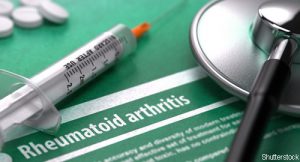 What if patients at risk of developing rheumatoid arthritis (RA) could be identified before they became symptomatic?
What if patients at risk of developing rheumatoid arthritis (RA) could be identified before they became symptomatic?
Through ongoing research, Kevin Deane, MD, PhD, associate professor of medicine, Division of Rheumatology, Department of Medicine at the University of Colorado Denver School of Medicine, Aurora, Colo., believes the field of rheumatology is getting closer to discovering how to stop autoimmune diseases, such as RA, before they start.
Although clinical outcomes for RA have improved due to advances in therapy, Dr. Deane says some patients continue to respond inadequately to treatment. Over the years, he has devoted much of his research to exploring factors that increase susceptibility to RA.
“Through blood testing, we can now identify individuals who are at risk of developing RA before they develop full-blown inflammatory RA,” Dr. Deane says. “By identifying and treating RA earlier, we may ultimately be able to prevent RA, or delay its onset and severity.”
In his latest study, Dr. Deane and his colleagues examined the timing of elevations of autoantibody isotypes prior to RA diagnosis.1 By using the Department of Defense Serum Repository, researchers identified 214 RA cases and 210 matched controls to evaluate patterns of elevations of the two most commonly used diagnostic markers of RA: rheumatoid factor (RF) and measured IgG, IgM and IgA isotypes for anti-citrullinated protein antibodies (ACPA).
“The presence of the different antibodies in serum of RA patients can be detected years before the onset of the actual disease,” Dr. Deane says. “We looked at the blood tests of patients who had ultimately developed RA to see which biomarkers were present and how they changed over time.”
Dr. Deane notes serum antibodies, including RF and ACPA, as well as systemic inflammation, have been shown to be abnormal prior to the development of clinically identifiable synovitis and a diagnosis of classified RA.
“In our research, we saw signs of an abnormal immune system in the years prior to an RA diagnosis that may lead to the development of RA,” Dr. Deane says.
In some cases, Dr. Deane says abnormal antibodies were present up to 17 years before patients began to experience symptoms, such as swollen joints.
In particular, Dr. Deane and his team noted IgA autoantibodies, which may reflect processes that occur at the mucosa, became elevated around the time individuals transitioned to a diagnosis of RA. “This needs more study, but this finding could mean in some individuals that mucosal factors are important in driving a transition from pre-RA to arthritis,” he says.




